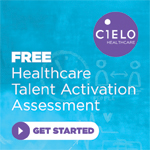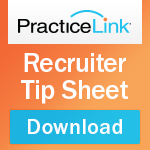ASHHRA eNews Pulse
ASHHRA
ASHHRA eNews Brief: November 2014Visit https://www.naylornetwork.com/ahh-nwl/articles/index-v3.asp?aid=294691&issueID=32471 to view the full article online.
Visit http://www.ashhra.org/advocacy/resources.shtml#latest_updates to view the full article online.
Visit http://www.ashhra.org/publications/compensation_survey.shtml to view the full article online.
Visit http://www.ashhra.org/learning/webinars.shtml#103014 to view the full article online.
Visit http://www.aha.org/advocacy-issues/emergreadiness/ebola/index.shtml to view the full article online.
Visit http://aharesourcecenter.wordpress.com/2014/11/06/top-100-best-places-to-work-in-health-care-2014/ to view the full article online.
Visit http://aharesourcecenter.wordpress.com/2014/11/05/hospitalists-how-many-are-there-and-what-is-their-role/ to view the full article online.
Visit http://aharesourcecenter.wordpress.com/2014/10/21/top-10-physician-specialties-that-will-grow-the-most-by-2025/ to view the full article online.
Visit http://www.hospitalimpact.org/index.php/2014/10/23/support_care_for_health_workers_to_impro to view the full article online.
Visit http://www.fiercehealthcare.com/story/4-emerging-healthcare-jobs/2014-11-10 to view the full article online.
Visit http://www.fiercehealthcare.com/story/resilience-training-may-help-prevent-icu-nurse-burnout/2014-11-04 to view the full article online.
Visit http://www.hhnmag.com/display/HHN-news-article.dhtml?dcrPath=/templatedata/HF_Common/NewsArticle/data/HHN/Daily/2014/Nov/hiring-veterans-toolkist-recruiting-blog-santamour to view the full article online.
Visit http://www.worldatwork.org/adimComment?id=76174&from=Total%20Rewards%20News%20All to view the full article online.
Visit http://www.mdnews.com/news/2014_11/surveying-incentives-in-physician-recruitment.aspx to view the full article online.
Visit http://www.washingtonpost.com/national/health-science/new-hospital-job-patient-satisfaction-officer/2014/11/03/ed244104-5301-11e4-892e-602188e70e9c_story.html to view the full article online.
Visit http://www.hhnmag.com/display/HHN-news-article.dhtml?dcrPath=/templatedata/HF_Common/NewsArticle/data/HHN/Magazine/2014/Oct/boomer-challenge-workforce to view the full article online.
Visit http://www.fiercehealthcare.com/story/does-social-media-boost-healthcare-careers/2014-11-03 to view the full article online.
Visit http://www.hhnmag.com/display/HHN-news-article.dhtml?dcrPath=/templatedata/HF_Common/NewsArticle/data/HHN/Magazine/2014/Nov/editors-note-physician-engagement to view the full article online.
Visit http://www.hhnmag.com/display/HHN-news-article.dhtml?dcrPath=/templatedata/HF_Common/NewsArticle/data/HHN/Magazine/2014/Nov/cov_docACO to view the full article online.
Visit http://www.cbsnews.com/news/a-key-thing-doctors-can-do-to-reduce-hospital-errors/ to view the full article online.
Visit http://www.hospitalimpact.org/index.php/2014/11/06/what_the_philadelphia_eagles_can_teach_h to view the full article online.
Visit http://www.fiercehealthcare.com/story/team-based-approach-cuts-alarm-fatigue-80-percent/2014-11-10 to view the full article online.
Visit http://www.hhnmag.com/display/HHN-news-article.dhtml?dcrPath=/templatedata/HF_Common/NewsArticle/data/HHN/Daily/2014/Nov/intermountain-health-innovation-blog-stempniak to view the full article online.
Visit http://www.healthleadersmedia.com/content/HR-309940/3-Way-to-Keep-the-Leadership-Pipeline-Full to view the full article online.
Visit http://www.beckershospitalreview.com/hospital-management-administration/what-makes-a-successful-health-system-leader.html to view the full article online.
Visit http://www.fiercehealthit.com/story/hospital-cios-cultivate-relationships-achieve-success/2014-10-31 to view the full article online.
Visit http://www.healthcarefinancenews.com/news/10-ways-boost-patient-satisfaction to view the full article online.









